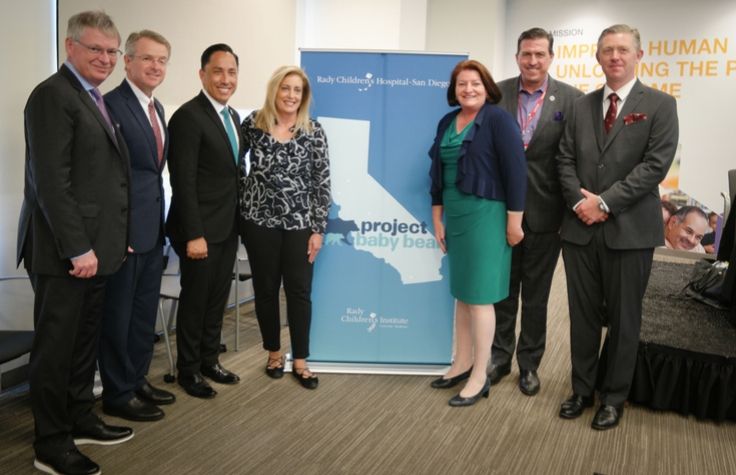
17 October 2019
In collaboration with Rady Children’s Hospital of San Diego, Illumina hosted a joint briefing of the California Assembly Select Committee on Biotechnology and the California Legislative Rare Disease Caucus. The briefing was centered on the outcomes-to-date of the California State pilot project use of clinical whole genome sequencing (cWGS) for rapid diagnosis and early treatment of genetic diseases in acutely ill infants in Medi-Cal funded intensive care units.
Named “Project Baby Bear,” and administered by Rady Children’s Institute for Genomic Medicine, Project Baby Bear is a quality improvement project employing cWGS for more than 100 acutely ill children enrolled in the Medi-Cal program at neonatal/pediatric Medi-Cal intensive care sites.
The pilot program serves babies in intensive care by rapidly pinpointing the cause of rare disease, and in many cases, doctors are able to precisely tailor care to improve lives and save healthcare costs. Project Baby Bear is offering hope to infants and families.
The progress presented on the pilot program at the briefing from RCHSD was remarkable. Rady clinicians, Stephen Kingsmore and Lauge Farnaes, reported on across-the-board savings in cost of care, and diagnoses in 43% of the infants sequenced. In more than 35% of cases, sequencing altered the clinical management of babies.
Deeply moving testimony from two mothers of rare disease children reminded the legislators in attendance of the life-saving and life-altering value of making the power of whole genome sequencing as widely available as possible. Pamela Aguirre, mother of baby Nathan Aguirre Martinez, and Angela Ramirez Holmes, mother of 8-year-old Andrew Holmes, shared their stories of the powerful effect of knowing clearly – as a result of genomic level accuracy – the conditions affecting their children and the choices available for precision treatment.
In briefing the committee, Mrs. Aguirre noted that, “saving a life should not be based on affordability.”
In 2018, Illumina supported the effort to secure funding from the State of California to make clinical whole genome sequencing available, on a pilot project basis, in the state’s Medi-Cal Program. Through incredible stewardship of the resources made available, Rady has already helped 116 children and their families in Medi-Cal and estimates it can sequence between 130 – 140 cases.
The final report on Project Baby Bear is expected in early 2020.


